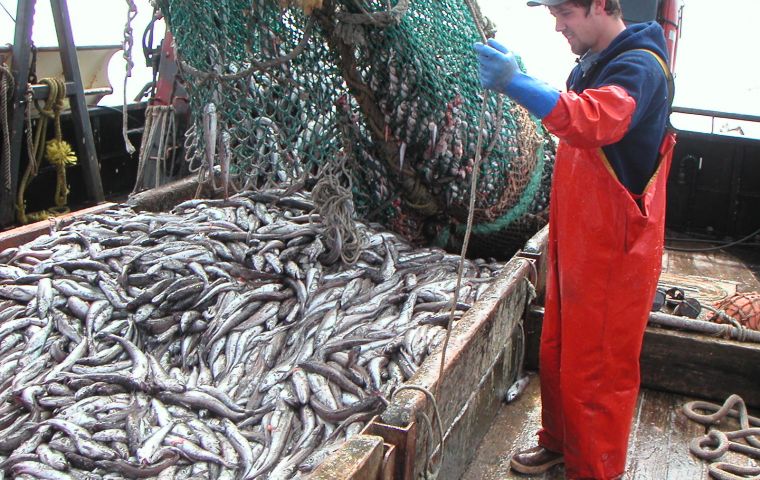MercoPress. South Atlantic News Agency
Argentina and Uruguay agree on temporary ban to hake fishing
 The resolution was issued as per provisions stemming from the Treaty of the River Plate and its Maritime Front
The resolution was issued as per provisions stemming from the Treaty of the River Plate and its Maritime Front The Joint Technical Commission of the Maritime Front of Argentina and Uruguay has issued a temporary ban on hake catching due to the “concentration of juvenile specimens” that “it is necessary to protect,” it was announced Wednesday.
The measure will be in force during the entire third quarter of 2022 in a specific area of the Atlantic Ocean delimited by five geographical points off the Uruguayan Atlantic coast.
The resolution prohibits ”from July 1 to September 30, 2022, inclusive, the fishing of the species hake (Merluccius hubbsi), as well as the use of all types of bottom fishing gear” in the area comprised by the crossings between the parallel 35°03′ south latitude (S) and the meridian 52°53 west longitude (W); 35°18'S and 52°30'W; 36°27'S and 53°45'W; 36°54'S and 54°12'W; and, finally 36°31'S and 54°36'W.
Failure to abide by this decision shall be regarded as “a serious non-compliance,” it was explained.
The ban aims at contributing to the ”rational exploitation of the hake species (Merluccius hubbsi) through the establishment of closed areas that protect the concentrations of juveniles of this species in the Common Fishing Zone”.
The resolution was issued as per provisions stemming from the Treaty of the River Plate and its Maritime Front. It came just days after a relevant agreement on fisheries subsidies at the World Trade Organization (WTO) Ministerial Conference in Geneva.
Argentina is one of the countries suffering from the economic and environmental effects of large-scale fishing in the Exclusive Economic Zone (EEZ). The World Bank estimates that annual economic losses from overfishing amount to US$ 83 billion. The portion of the fish stock at unsustainable levels rose from 10% in 1974 to 34.2% in 2017.
The recent agreement reached by the WTO has clauses that may limit the scope of future regulations and left out of the agreement subsidies for diesel fuel used by vessels, which accounts for much of the economic support to overfishing, it was reported.




Top Comments
Disclaimer & comment rulesCommenting for this story is now closed.
If you have a Facebook account, become a fan and comment on our Facebook Page!